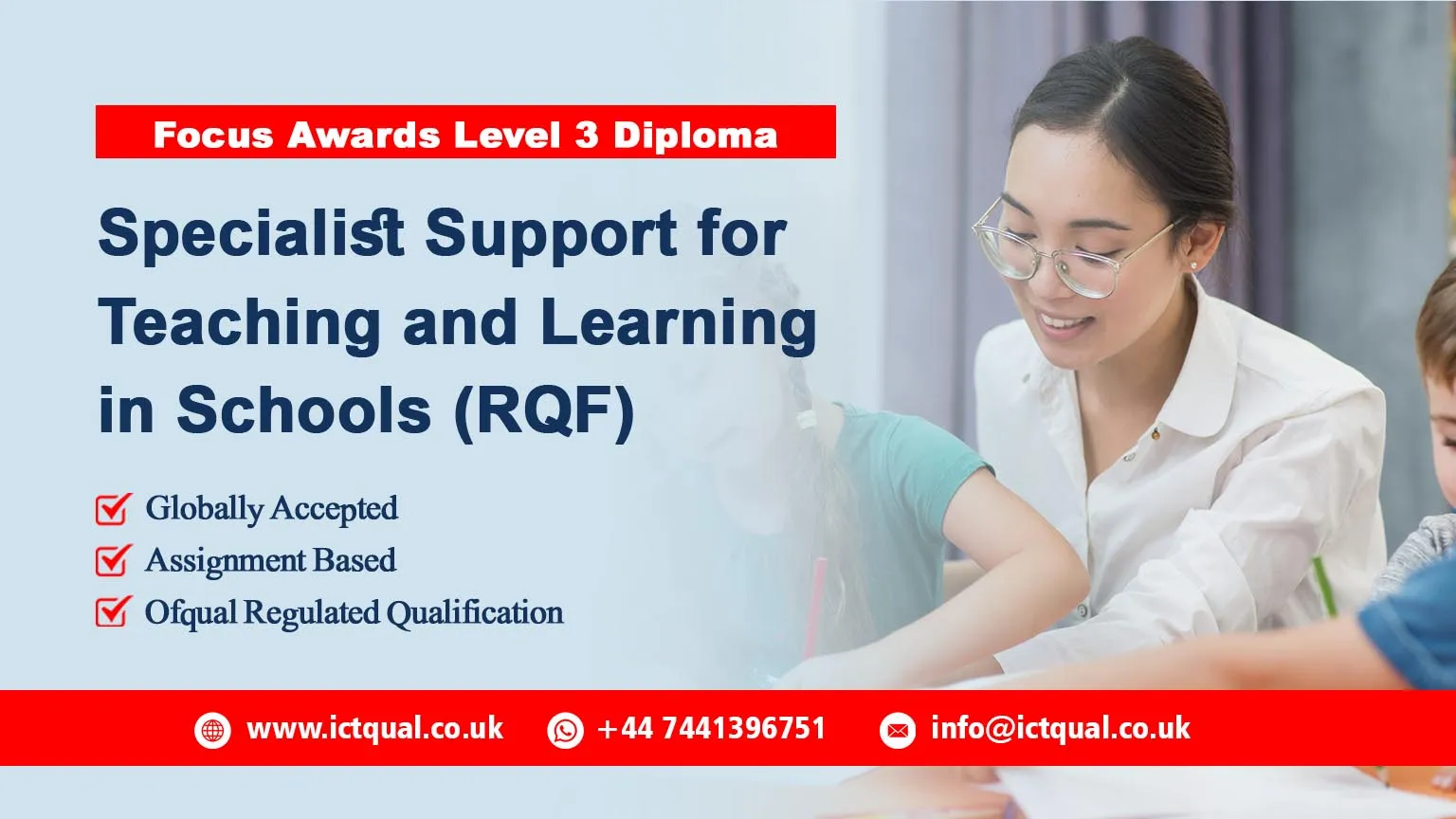The Focus Awards Level 3 Diploma in Specialist Support for Teaching and Learning in Schools (RQF) is a prestigious qualification tailored for individuals who are either currently working in or aspiring to take on specialist support roles within the education sector. This comprehensive diploma equips learners with the essential knowledge, practical skills, and hands-on experience needed to excel in roles that significantly contribute to the success and well-being of students in schools.
Regulated by Ofqual, the Level 3 Diploma ensures that learners meet the rigorous standards required in the education sector. The curriculum covers a broad range of topics, including safeguarding, child development, and effective professional communication, providing a solid foundation for those in teaching assistant, learning support assistant, and related roles. The qualification also emphasizes supporting children and young people in their learning journey, with a particular focus on specialist areas such as Special Educational Needs (SEN) and behavioral support.
This diploma is ideal for individuals who are passionate about working in education but do not necessarily wish to pursue a formal teaching qualification. It is particularly suited for those already working in schools or those seeking to transition into roles such as teaching assistants, classroom support workers, or SEN assistants. By completing the program, learners gain both theoretical knowledge and practical expertise that can be immediately applied in educational settings.
Achieving the Level 3 Diploma in Specialist Support for Teaching and Learning in Schools offers numerous benefits. It opens up a wide range of career opportunities, from general classroom support roles to specialized positions focusing on areas like SEN or behavioral management. Additionally, it enhances professional credibility and demonstrates a commitment to personal growth, improving employability and earning potential. Most importantly, it empowers individuals to make a meaningful impact on students’ academic and personal development by delivering high-quality support.
The Focus Awards Level 3 Diploma in Specialist Support for Teaching and Learning in Schools (RQF) is more than a qualification—it is a pathway to making a significant contribution to the education sector. Whether you are beginning your career or looking to advance your existing skills, this diploma provides a robust framework to achieve professional success and positively influence the lives of the students you support.
The Focus Awards Level 3 Diploma in Specialist Support for Teaching and Learning in Schools (RQF) is a well-rounded and comprehensive qualification designed for individuals eager to make a significant impact in the education sector. It is particularly suited for those aspiring to support teachers and enhance the learning experiences of children and young people in schools. This diploma, regulated by Ofqual, ensures learners receive high-quality training that meets modern educational standards and practices.
The program covers essential aspects of specialist support, focusing on areas such as safeguarding, child development, behavior management, and strategies for working with students with Special Educational Needs (SEN). Learners also develop skills in fostering effective communication and collaboration between teachers, students, and parents, creating an inclusive and supportive learning environment. The emphasis on both academic and personal development ensures participants are well-prepared to address the diverse needs of students in schools.
A key feature of this diploma is its flexibility. Many training providers offer it through online or blended learning formats, enabling individuals to balance their studies with work or personal commitments. The inclusion of practical elements allows learners to apply their knowledge in real-world educational settings, ensuring they gain valuable hands-on experience. This practical approach prepares graduates for roles such as teaching assistants, SEN support workers, and classroom aides.
Upon completion, the Level 3 Diploma opens doors to numerous career opportunities in education and provides a foundation for further advancement. Graduates can pursue specialized positions, higher-level teaching support roles, or even additional qualifications to progress their careers. For those passionate about education, this diploma not only equips them with the skills to excel in their current roles but also positions them for long-term success and meaningful contributions to the academic and personal growth of students.







